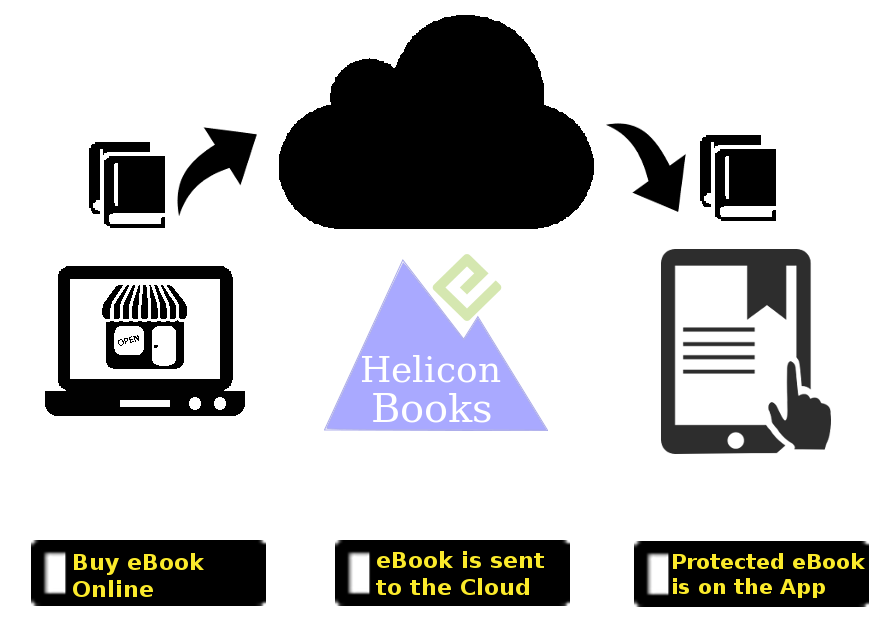
The Helicon Books cloud system can be used by digital book stores to send EPUB files directly to customer's application without sending the file by mail. This leads to a better copy protection as the user can not copy the file and share it.
For the user this leads to better usability and ease of use as the user does not have to save the file and upload it to the reading application. The file will simply be there.
The cloud system also synchronizes reading positions from two systems owned by the same user, so if the user is reading the same book on a smartphone and tablet, the reading position will be synchronized. Imagine reading a book at home on the tablet, then when on the road, continue reading the same book on the phone.

How is this done?
The main part of the system is a secured cloud system, the stores send the EPUB file as an attached file to a single email address. The subject of the mail contain the user's email address. The user then registers to the reading application using the same mail. The reading application uses a protocol defined by Helicon Books to retrieve the books for the user.This is currently used by Helicon Books Reader only. Helicon Books will soon release an online reading application that can also read these files.
In Helicon Books Reader, the books that are downloaded to user's system, are stored in a memory area that is accessible only to the application. This provides a strong copy protection without the need for complex and expensive DRM systems. The protocol itself that transfers the files from the cloud server to user's application is open and can be used by any reading system vendor.
In the future, the cloud system will have an API that will be used by stores to retrieve reading statistics information and thus provide better recommendations to users based on what they actually read and not only what they buy. Connection to the cloud is free for users. The stores pay a small fee for each book sent to the system.

